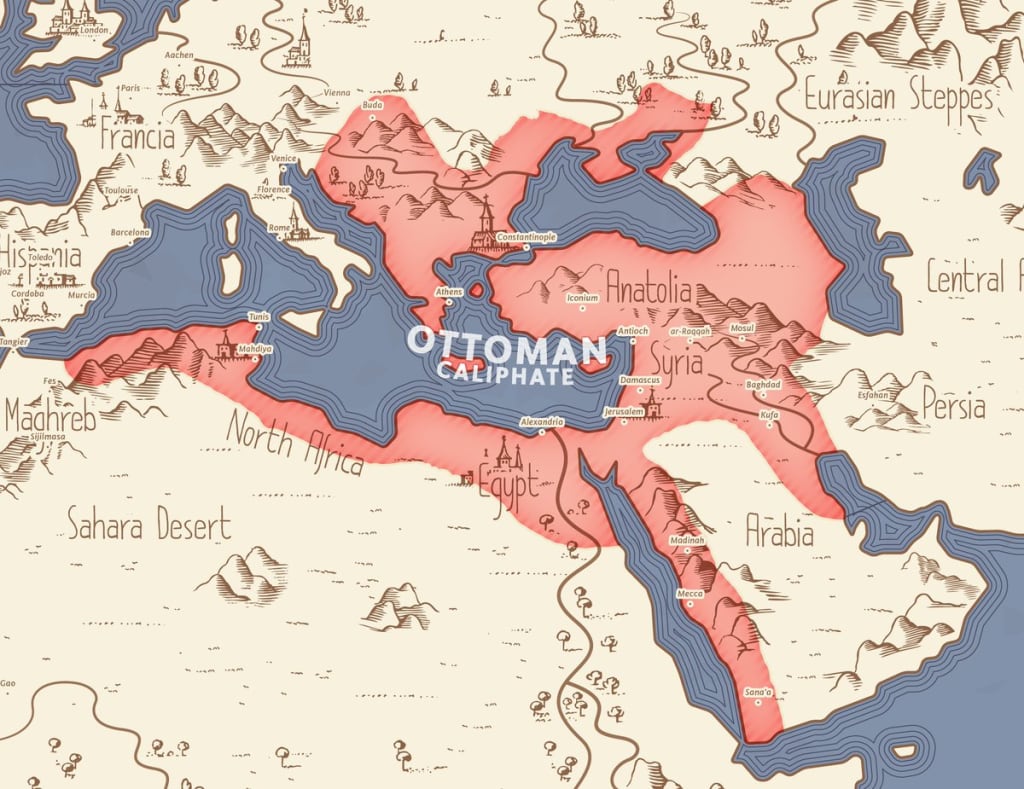
The Ottoman Empire was one of the most powerful and influential empires in history. It lasted for over six centuries and spanned three continents, Europe, Asia, and Africa. The empire was founded by Osman I in 1299 and lasted until the end of World War I in 1922. During its peak, the Ottoman Empire was a major player in world politics, culture, and economics.
Origins and Early History
The Ottoman Empire was founded by Osman I in 1299. Osman was the son of Ertugrul, the leader of a small Turkish tribe known as the Kayi. Osman was able to unite several other Turkish tribes and expand his territory. He established his capital at Bursa and began the process of building a powerful empire.
In the early years of the Ottoman Empire, the focus was on conquest and expansion. Osman and his successors conquered much of Anatolia, the Balkans, and parts of the Middle East. They established a system of government based on the principles of Islamic law and created a powerful army known as the Janissaries.
The Rise of the Ottoman Empire
The Ottoman Empire continued to expand under the leadership of Osman's successors. Mehmed II, also known as Mehmed the Conqueror, is considered one of the most important Ottoman leaders. He conquered Constantinople in 1453 and made it the capital of the Ottoman Empire. This conquest marked the end of the Byzantine Empire and solidified the Ottoman Empire as a major power in the region.
Under the rule of Suleiman the Magnificent, the Ottoman Empire reached its peak. Suleiman ruled from 1520 to 1566 and is considered one of the most powerful and successful rulers in Ottoman history. He expanded the empire into Europe, conquered Hungary, and established control over much of the Mediterranean. Suleiman was also a patron of the arts and literature, and his reign is known as the "Golden Age" of the Ottoman Empire.
The Ottoman Empire and World Politics
The Ottoman Empire was a major player in world politics during its peak. The empire was involved in conflicts with many other major powers, including Russia, Austria, and France. The empire was also involved in the First World War, which ultimately led to its downfall.
During the 19th century, the Ottoman Empire began to decline. The empire was faced with economic problems, social unrest, and pressure from European powers. European powers began to take control of Ottoman territory and influence Ottoman politics. The empire became known as the "sick man of Europe."
The Fall of the Ottoman Empire
The First World War was the final blow to the Ottoman Empire. The empire entered the war on the side of the Central Powers, but was ultimately defeated. After the war, the empire was partitioned by the victorious powers, and much of its territory was taken by other countries. The Ottoman Empire officially ended with the signing of the Treaty of Lausanne in 1923.
Legacy of the Ottoman Empire
The legacy of the Ottoman Empire is complex and controversial. The empire is remembered for its military power, cultural achievements, and influence on world history. However, the empire is also remembered for its treatment of minorities, including Armenians and Greeks. The Ottoman Empire is also criticized for its role in the decline of the Islamic world and for its attempts to modernize and Westernize its society.
The Ottoman Empire has had a significant impact on modern Turkey, which was created out of the ashes of the empire. Many of the institutions and structures of the Ottoman Empire were carried over into the modern Turkish state. The legacy of the Ottoman Empire can also be seen in the cultural and linguistic influences it had on the regions it once controlled.
Conclusion
The Ottoman Empire was one of the most powerful and influential





Comments
There are no comments for this story
Be the first to respond and start the conversation.